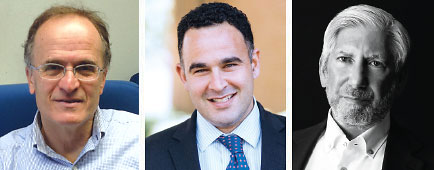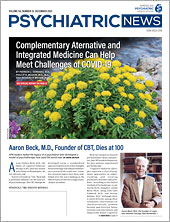Momentum is growing for greater access to psychedelic drugs—LSD, psilocybin mushrooms, and ayahuasca. Over the past few years, several U.S. cities—including Washington, D.C.—have decriminalized psilocybin, while statewide decriminalization bills are being considered in both California and New York. Last November, Oregon went further and became the first state to legalize psilocybin as a therapy aid. The ostensible purpose is to treat medical conditions like depression and anxiety, but the more ambitious hope is that psychedelic substances can expand human awareness and elevate consciousness.
The problem? There is no empirical evidence that this is feasible.
This trend should be familiar as it follows the path that cannabis recently forged across the United States. Capitalizing on changing public opinion about recreational drugs, marijuana went from an illegal to prescription to recreational intoxicant over the past 25 years. The expansion of access to cannabis began with symbolic efforts to secure approval from the Food and Drug Administration (FDA) for therapeutic uses but led to relaxation of restrictions in almost every state—18 states have legalized it, and 30 states have decriminalized and/or approved it for medical purposes. These policy changes have been followed closely by interest groups ready to capture these new markets and make money. Last year, the cannabis industry swelled to $61 billion by one account. It comes back, alas, to the almighty dollar.
On the surface, medicinal use of cannabis-derived substances, and even recreational use in adults, seem justified given the proclivity of Americans to get what they want. However, following legalization, cannabis has been commercialized and marketed in the forms of more potent products, such as edibles, oils, and concentrates. These contain concentrations of THC (which is what gets one high) that extend beyond the 4% to 12% in naturally occurring forms to upward of 99.9% in commercial products. These more potent forms heighten the risk of acute and long-term adverse effects (such as paranoid perceptions and ideation, anxiety, and impaired concentration and memory) particularly in youth. Studies have found these adverse effects already being reflected in rates of car crashes, emergency room visits, lower test scores, and increased cases of psychoses.
While the resurgence of psychedelics—whose market is projected to grow from $2 billion in 2020 to $7 billion by 2027—is following a similar trajectory, it differs in two important ways. First, research and product development efforts have neither involved the federal government nor major pharmaceutical and biotech companies. Very little research on the basic science and even less of the therapeutic uses of psychedelic drugs is being funded by any of the 27 institutes and centers of the National Institutes of Health, including the National Institute of Mental Health (NIMH). The most advanced compounds seeking FDA approval are sponsored by small startup companies created mainly for the purposes of promoting psychedelics. This is in stark contrast to the extensive research conducted on cannabis—both its benefits and risks—that has been sponsored by federal agencies, including NIMH.
The second difference is the unique effects of psychedelic drugs. Tiny amounts induce a profoundly altered state of mind, which is by turns ecstatic, revelatory, and mystical and overwhelms the individual. The drugs’ power and influence inspire users to extol their therapeutic properties. Yet only scientifically rigorous research can determine what these are. To not exploit this opportunity risks repeating history and making the same mistakes that shut down the first wave of psychedelic research.
In the 1950s, studies by the Army and CIA tested LSD as a truth serum, resulting in a participant’s suicide. In another study, unknowing patients were injected with mescaline analogues, causing at least one death. Coverups ensued, and the facts came to light only years later. In addition, their widespread uncontrolled recreational use in the 1960s gained psychedelics notoriety for causing “bad trips” and other severe mental effects in some people. By the early 1970s, psychedelics were classified by the Drug Enforcement Administration as Schedule I drugs, substances with high abuse potential and no FDA-approved medical use. From then on, researchers could not study them, and doctors could not prescribe them for about 40 years.
It’s clear that attitudes about the therapeutic uses of psychedelics have changed. People with mental health conditions are looking for innovative alternatives when standard treatments don’t work well. However, we ignore the risks of unrestricted access to psychedelics at our own peril.
There are many practical questions we need to know like which drugs and which doses are most effective for different disorders, or what is the best route (oral, intranasal, by injection) and method of administration (exposed to ambient stimuli or wearing noise cancelling headphones, blindfolded, lying in a dark silent room). We have no idea how to maintain benefits should good therapeutic results be achieved. The entire modern research literature on psychedelic drugs includes fewer than a dozen randomized, controlled studies and less than 500 subjects.
To address this problem, we recommend that the NIH, in collaboration with scientific and medical organizations, establish a high-level workgroup of leading scientists to examine what must be done. This group could review existing research, chart a research plan, and monitor and interpret progress. A parallel process within the government should determine a regulatory and legal framework to govern access to these substances.
State governments are now motivated to decriminalize or legalize psychedelics out of political responsiveness to public demand and the potential for creating new tax revenues from sales, despite paltry revenues from legal alcohol and cannabis. Within the past year, three new psychedelic biotechnology startups have gone public in the United States. Private investment is fueling the process of commercialization to the point that practice is leaping far ahead of research. Before the process gets out of control (as it did in the 1960s), relevant government agencies and biomedical research communities must recognize the opportunity and dangers and work together to ensure that we don’t repeat the past and are able to understand the risks—and harness any benefits—of psychedelics. ■

